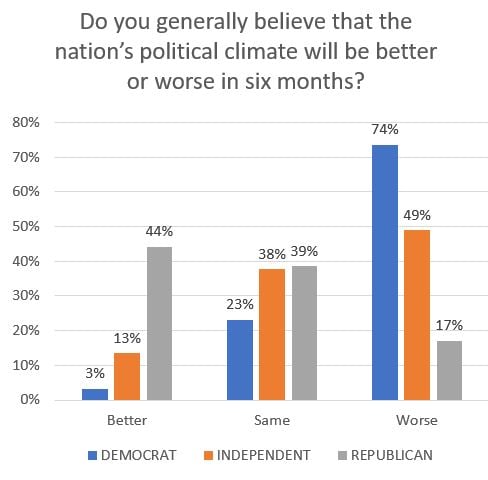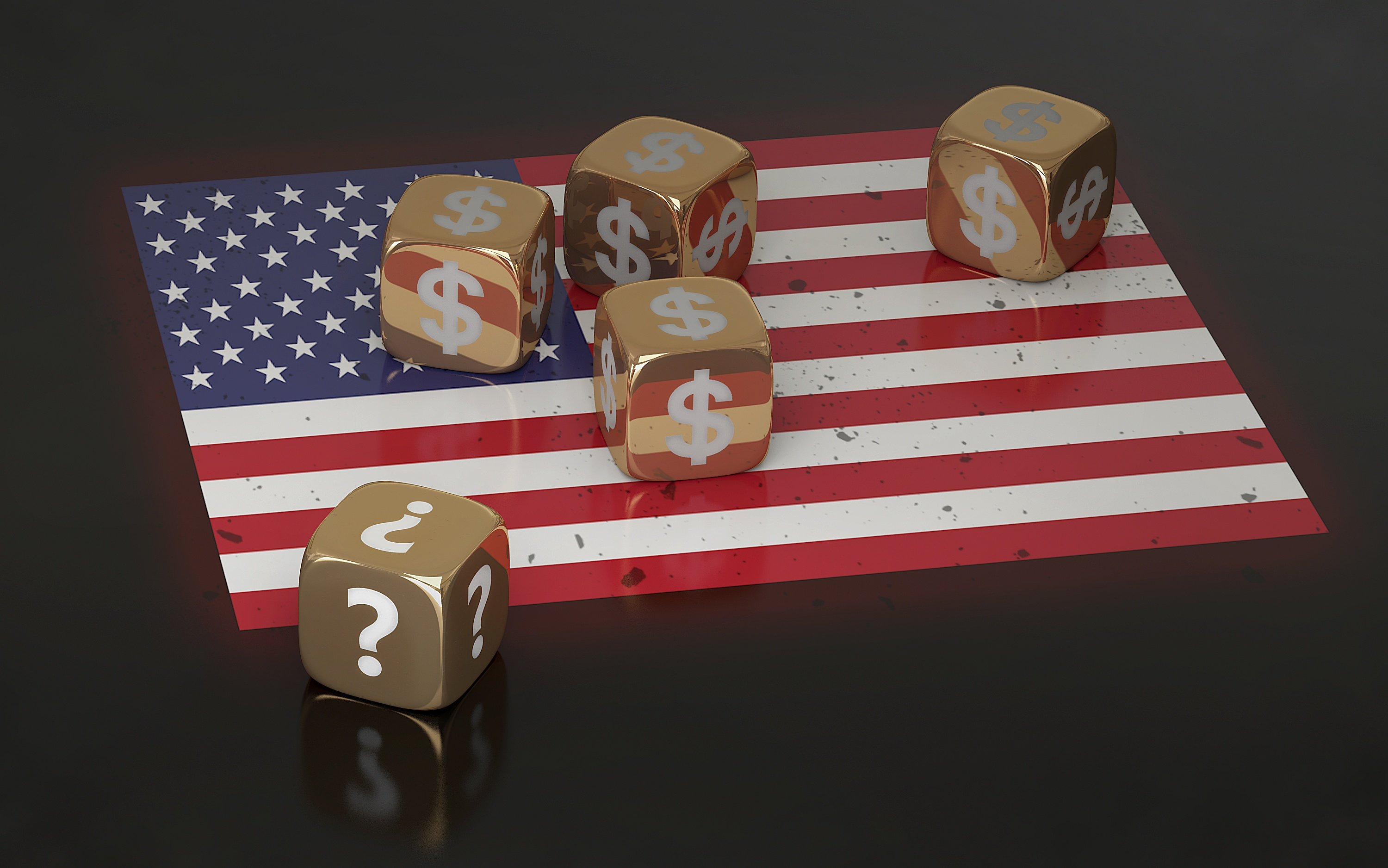No matter one's political ideology, there is no sense in being obtuse or mincing words: there is a new level of political acrimony in our national discourse, and among many a perception that things are getting worse. Now, it should go without saying that we have no political skin in this game--we are just nerds with a giant database and an interest in finding market trends, so we naturally wanted to know if politics and the economy are shaping people's purchase behaviors?
Spoiler alert: they are.
Between June 7 and 14, TrendSource, a market research and strategic consulting firm based in San Diego, surveyed 1,971 individuals in our proprietary Field Agent Database. We wanted to know if they intended to purchase a bit-ticket item in the near future, and then relate that to the information they provided about their political and economic ideologies and perceptions, as well as demographic data related to income and race.
But before we could pinpoint the current political climate's impact on big-ticket purchases, we first had to figure out how many people are even paying attention.When we asked if respondents felt they were up-to-date on political news and happenings, 84% said yes. Of course, few people want to own up to willful ignorance, but either way only 16% of respondents indicated they are not following political news at least somewhat regularly. Obviously, the less one follows the news, the less likely that news is to affect their purchase.
While jumping into the 24-hour news cycle keeps you informed about the current political happenings, we found that individuals' forecast of the future political climate weighed far heavier on their purchase intentions.
Controlling for household income and beliefs about the future of the economy, individuals who believe the political climate will improve over the next six months are 79.5% more likely to purchase a big-ticket item than individuals who believe it will be worse. People who think it will stay the same are 35% more likely to purchase a big-ticket item than people who believe it will get worse. For those looking for a top-line-take-away, that's it right there: people's perception of the political future directly relates to their willingness to make big-ticket purchases--those who see it as likely to improve are almost twice as likely to plan a purchase.
So, we know that how one perceives the political and economic future relate to their purchase intentions, but what goes into one's political perceptions? An obvious starting point is political party and our sample included a roughly even distribution of self-identified Republicans (33%), Democrats (35%), and Independents (32%).
Of course, politics are much trickier than just Republican, Democrat, Independent. So we dug a bit deeper and asked respondents to locate their ideology on a five-point scale ranging from very liberal to very conservative. Again, we found the same relative distribution--it seems that our Field Agent Database, in addition to being the best in the business, also contains a remarkably even distribution of political ideologies ;)
And party self-identification is an important indicator of one's perceptions of the economic and political future: 44% of Republicans believe the economy of six months from now will be better, 58% of Democrats say it will be worse; 62% of Republicans believe future politics will improve, 74% of Democrats say it will deteriorate. The sheer opposition of those numbers should be brutally instructive for political scientists and market researchers alike.

Furthermore, the more liberal an individual self-identified, the more influence politics had on his/her purchase intentions. Also, not surprisingly, the more conservative a respondent, the higher they rated the current political and economic landscapes.
Beyond political party, what else informs our future economic and political outlook, and thus our willingness to buy big-ticket items? Well, we know one thing: money talks, or at least it begets economic optimism, it would seem. The more money one's household makes, the likelier they are to believe the economy will improve over the next six months. Strikingly, while only 24% of those individuals with household incomes less than $20,000 believe the future economic outlook is brighter than today, almost twice as many (41%) in the highest income bracket, with household earnings over $150,000, see improvements on the horizon.
If money talks, race matters, particularly when it comes to how individuals perceive the future economic and political outlook. Indeed, 66% of Blacks and Latinas/os believe the political landscape will deteriorate even more over the next six months, compared to only 41% of whites. Only 7% of Black and Latina/os believe the political climate will improve over the next six months; 24% of whites felt the same.
While much of this can be boiled down to a chicken or egg argument--with only 4% of Black respondents and 18% of Latina/o respondents identifying as Republican, it is hard to pin down distinctions between ethnoracial segmentations--the fact remains that, as a collective group, Blacks and Latinas/os are far likelier to have a negative perception of the future, which is strongly correlated to decreased purchase intentions. We aren't granting primacy to politics, race, or income--just pointing out that Blacks and Latinas/os do not have much political or economic optimism relative to their white counterparts. We will leave it to the political scientists to tell us why.
When we broke racial identity down into one binary--white and nonwhite--the results were even more illuminating. A staggering 64% and 48% of nonwhite respondents respectively believed the economic and political future would be worse than today; only 41% and 32% of white respondents felt the same, speaking directly to the relationship between racial identity, political ideology, and future economic outlook.
One could go so far as to wonder if this becomes a self-fulfilling prophesy? Like the proverbial butterfly-flap-to-hurricane-force-winds, does a group's prediction of the 6-months-out tenor of politics, and their related purchasing behavior, adversely effect the very same politics they pondered -- and thus the cycle continues? Like a political inception, only time, future events, and a spinning top will tell.
Want to dive deeper in to the survey? View the raw survey data here.
Analysis utilized cross-tabulation, correlation (parametric and non-parametric as appropriate), and multiple logistic regression predicting planned big-ticket purchases.


